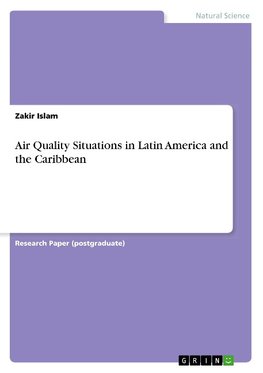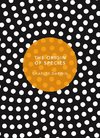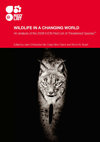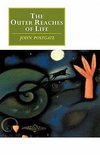
-
 Anglický jazyk
Anglický jazyk
Air Quality Situations in Latin America and the Caribbean
Autor: Zakir Islam
Research Paper (postgraduate) from the year 2019 in the subject Biology - Micro- and Molecular Biology, grade: 9.0, , language: English, abstract: This thesis work aims to investigate the air quality situation in Latin America and the Caribbean by making... Viac o knihe
Na objednávku
16.65 €
bežná cena: 18.50 €
O knihe
Research Paper (postgraduate) from the year 2019 in the subject Biology - Micro- and Molecular Biology, grade: 9.0, , language: English, abstract: This thesis work aims to investigate the air quality situation in Latin America and the Caribbean by making a review of the present status of air quality. This outline contains an evaluation of the current status of air quality observing countries and cities of LAC and the present levels of the most critical pollutants contrasted with the WHO Air Quality Standards. This review will also focus on the health effects of human causing by air pollution and development strategies to reduce air pollution in LAC.
Air pollution is the release of several pollutants into the air which is directly or indirectly harmful to the living beings. Around 91% of the total world's population lives in areas where air pollution exceeds WHO air quality guidelines. Air pollution has turned into a major global concern in numerous urban communities around the world as a result of developing industrialization and expanding urbanization. It harms crops, creatures, forests, and waterways. It also adds to the exhaustion of the ozone layer, which protects the earth from the sun's UV light.
Air is mainly composed of nitrogen, oxygen, Carbon Dioxide, sulfur dioxide, carbon monoxide, ammonia, nitrogen oxide, particulate matter, volatile organic compounds and other gases. Air pollution is caused by different types of pollutants present in the air and due to unfavorable weather conditions. These pollutants are including various short-lived climate pollutants, particulate matter, etc. Short-lived climate pollutants (SLCPs) remain in the atmosphere for a short time which has a warming effect on climate.
The major SLCPs consist of black carbon, tropospheric ozone and methane. The largest source of SCLPs in Latin America is Mexico City (Mexico). Furthermore, hydrofluorocarbons (HFCs) are responsible for air pollution. It is widely used in refrigeration and insulating foam. BC is another pollutant that absorbs sunlight and also melts ice and snow which cause global warming. 12% of the world's total BC emissions are originated from LAC. Black carbon remains in the atmosphere for a relatively short time for only days or weeks compared to other greenhouse gases, such as CO2. Accordingly, reducing black carbon emissions allows benefits almost immediately.
- Vydavateľstvo: GRIN Verlag
- Rok vydania: 2020
- Formát: Paperback
- Rozmer: 210 x 148 mm
- Jazyk: Anglický jazyk
- ISBN: 9783346066114












